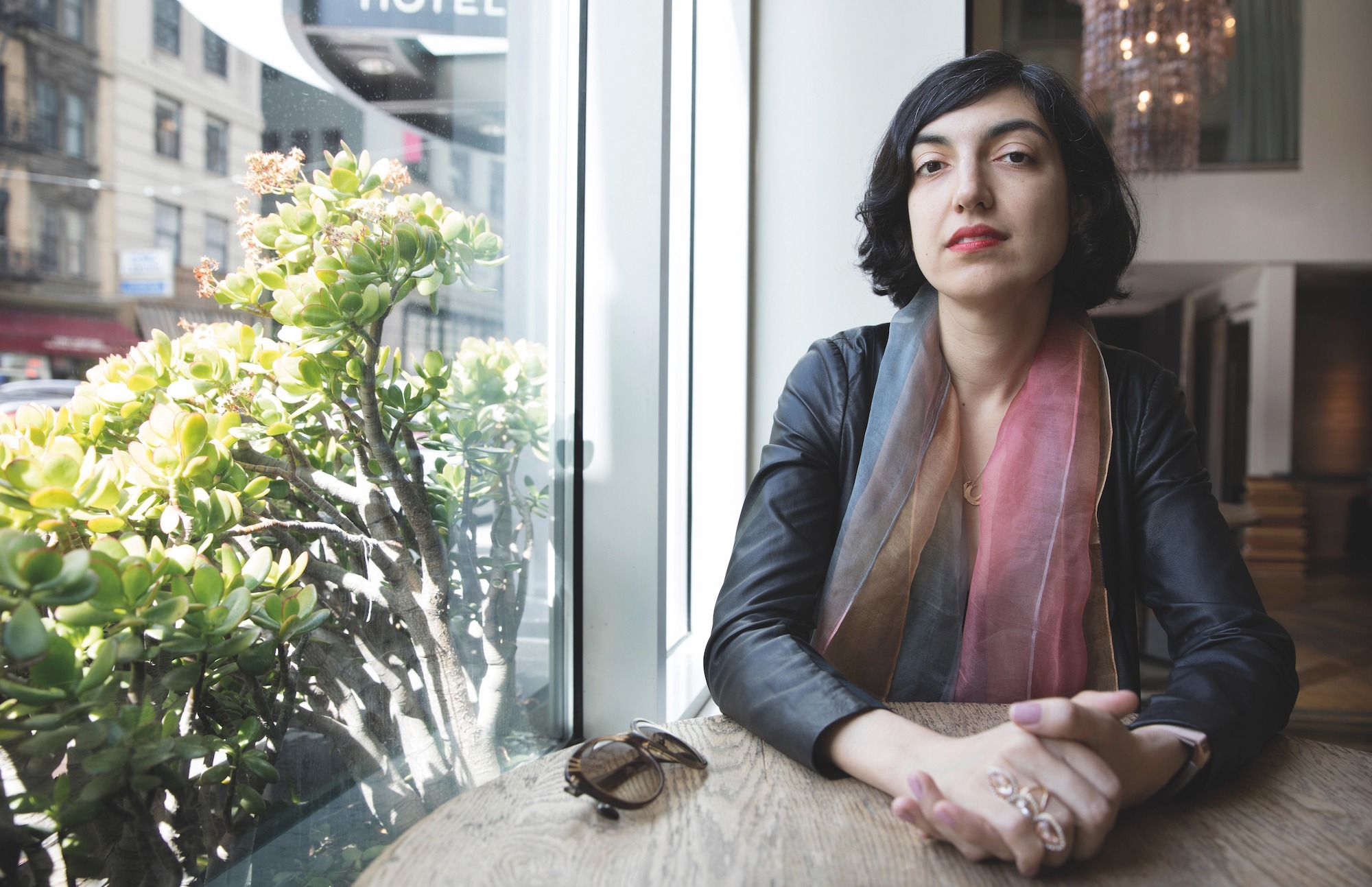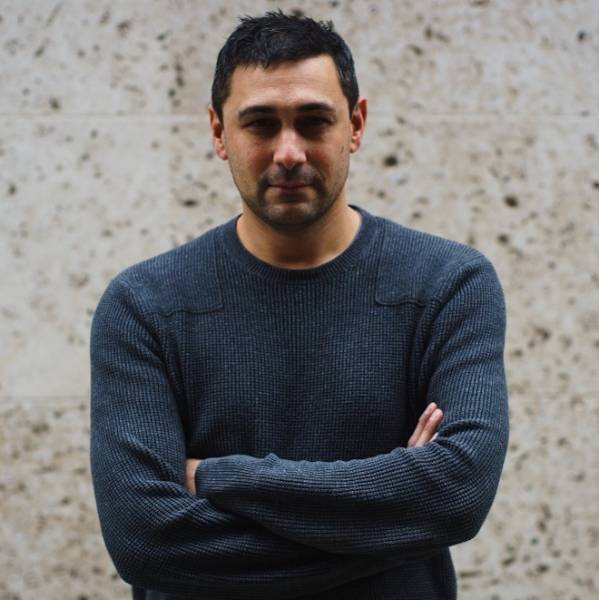
Elif Batuman is among the most intriguing self-portraitists of our time. Over the past 12 years, she has published three books on her university experiences – at Harvard, and later at Stanford. The books retread the same ground, together adding up to more than a thousand pages. This might seem like a mad undertaking. Yet, all three became bestsellers, considered by many to be eye-opening rather than navel-gazing. For Batuman, repeatedly writing about the same period of her life seems to have played an almost therapeutic role, like re-reading a novel to understand it a little better.
Her first book, The Possessed (2010), is a work of non-fiction, combining a memoir of her time at Stanford with literary criticism of the Russian books she was reading at the time. In a deceptively humorous tone, it plunges into serious intellectual questions. Next came The Idiot (2017), a novel whose protagonist – the freshman Selin – talks, thinks and jokes much like Batuman. There is also clear cross-over between the plot of the novel and the life events recounted in The Possessed. Yet, while Selin is clearly a stand-in for the author, she is also an everywoman many readers can identify with.
Now a sequel, Either/Or, picks up where The Idiot left off at the end of freshman year. While the first novel described Selin’s obsession with a flaky and seductive classmate Ivan, Either/Or unfurls her discovery of his deceptions. It also explores her transformation into an author.
What’s at stake in Batuman’s thrice-told Ivy League adventures? It is nothing less than finding freedom, and the question of how to live a good life. A super-tall 18-year-old Turkish-American girl from New Jersey, Selin desires a life devoted to experience, beauty and truth. Rejecting conformity’s certainties – a settled job, a husband, babies, religion – she’s determined to remain her own person.
This yearning appears to be rooted in Batuman’s own encounter with Dostoyevsky’s The Possessed. A multigenerational tale about the power of charisma, the Russian novel left such a strong impression on her that she began to see the world on its terms. Her debut is not only named after it, but draws on its characters and plot.
In Batuman’s The Possessed, she encounters a tall and dangerously charismatic classmate who closely resembles Stavrogin, Dostoyevsky’s hero. Later, she falls for another classmate, writing that there is “something mysterious and absent” about this Hungarian man, who turns out to have a girlfriend about whom Batuman “knew nothing, and whom he eventually married.” It’s clear that this second classmate – a manipulator and heart-breaker – was the real-life model for the fictional Ivan.
Literature as a framework for life
All three of Batuman’s books deal with friendships and failed romances with a light comic touch, but they are also deeply intellectual. The plots are explicitly informed by the author’s responses to literary texts, using these allusions to consider how literature might offer a framework for life.
With Either/Or, Batuman’s intellectual focus shifts from Dostoyevsky (a novelist who wrote like a philosopher) to Kierkegaard (a philosopher who wrote like a novelist); the novel shares a name with Kierkegaard’s first published work. “And is it not a pity and a shame that books are written which confuse people about life, make them bored with it before they begin, instead of teaching them how to live?” Kierkegaard’s Either/Or (1843) asks. Selin’s heart begins racing once she pores over that “fat Penguin Classics Edition,” where she locates a perplexing binary: “either, then, one is to live aesthetically or one is to live ethically.” While Kierkegaard’s case for the aesthetic life takes the form of a “Seducer’s Diary”, the ethical argument consists of letters from a judge about marriage.
Kierkegaard’s seducing hero Johannes is able “to make a girl fall in love with him, ‘without caring to possess her in any stricter sense’”. Through him, Selin diagnoses patterns of a larger personal scheme: Ivan, the classmate she obsessed over in The Idiot (modelled on the classmate described in The Possessed), was likewise “following some kind of playbook,” leading her on before ghosting her.
This discovery of Ivan’s “total deception” terrifies Selin, the innocent young bookworm who takes people at their word. Yet it also enlightens her. His scheme, “specially tailored for one other person”, is part of the aesthetic life, she surmises. On the opposite end is the “ethical life”, tied to having a family and a settled existence, which Selin’s best friend Svetlana, whom we first meet in The Idiot, embodies. “One day, early in our friendship, Svetlana had spontaneously told me that she thought I was trying to live an aesthetic life, and that it was a major difference between us, because she was trying to live an ethical life.” Svetlana can stand boredom when necessary. In contrast, Selin has a “terror” of being bored.
From classic literature, Selin’s searching gaze jumps to The Rules by Ellen Fein and Sherrie Schneider, a contemporary self-help book offering “time-tested Secrets for Capturing the Heart of Mr. Right”. The essence, Selin finds, was “to treat the man you were interested in just like the man you weren’t interested in.” Listening to Lauryn Hill’s “Killing Me Softly,” she hears echoes of her own frustrations. “With a display of technique that was unquestionable and brutal,” Hill was owning a story about being snubbed by a male singer. That’s what Selin is determined to do as well, guided by popular culture, along with the classics of literature and philosophy.
The search for meaning and escape
The aesthetic/ethical debate, which functions as a through-line in Either/Or, ends when Selin’s best friend Svetlana gets a boyfriend. “She would never again be what she had been, not in my life, and not in her own,” Selin muses. “This boyfriend, or his successor, would restrict her activities, her thoughts. In a way, I had won, but it felt like defeat. How could she drop out of the race, when we had only just started? How had they gotten her so easily? Did they get everyone? Would they get me?” There are plenty of dark moments. Selin is prescribed the antidepressant Zoloft; one scene shows her masturbating, sobbing and coming at the same instance. At one point, she considers jumping from a window before deciding against it. “No way, I thought. I was going to stick around and bury those people.”
Autobiographical storytelling provides Selin with an escape from the confines of a traditional life. Whenever anything makes her feel bad, she recounts it as a story “in which everyone was at least a little bit right, and some people were kind or humorous, and their kindness and humour redeemed everything, and recognising it redeemed me.” This makes her feel “humane and objective”.
This search for a meaningful, reflective life concludes with an operatic arch. Selin wants “to do whatever was the most real and rigorous”. To overcome patriarchy’s shackles, she is determined to “work ten times harder than they did, and everyone would eventually acknowledge I was doing a better job.” By articulating her search for a self-sufficient life and acting on her findings, Selin fulfils an almost pedagogical role in the novels. She is able to step “outside the script” of conventions by turning inward, carving out her own path by taking up the pen.
“There is no description so difficult, nor doubtless of so great utility, as that of a man’s self,” wrote the French essayist Montaigne. It was his similarly self-scrutinising project I recalled while closing Either/Or. By keeping a record of the adventures of her own mind, and that of her stand-in protagonist, Batuman gives her readers permission to do the same: assuring us that doing so is not selfish or pretentious. Arguably, there is nothing more important.
This piece is from the New Humanist autumn 2022 edition. Subscribe here.

